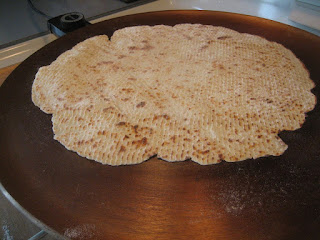A Bridge to the Past
Ezra 3:1-7
1When the seventh month came,
and the children of Israel were in the towns, the people gathered as one man to
Jerusalem. 2 Then
arose Jeshua the son of Jozadak, with his fellow priests, and Zerubbabel the
son of Shealtiel with his kinsmen, and they built the altar of the God of
Israel, to offer burnt offerings on it, as it is written in the Law of Moses
the man of God. 3 They
set the altar in its place, for fear was on them because of the peoples of the
lands, and they offered burnt offerings on it to the Lord, burnt offerings
morning and evening. 4 And
they kept the Feast of Booths, as it is written, and offered the daily burnt
offerings by number according to the rule, as each day required, 5 and after that the
regular burnt offerings, the offerings at the new moon and at all the appointed
feasts of the Lord, and the offerings of everyone who made a freewill offering
to the Lord. 6 From
the first day of the seventh month they began to offer burnt offerings to the Lord.
But the foundation of the temple of the Lord was not yet laid. 7 So they gave money to the
masons and the carpenters, and food, drink, and oil to the Sidonians and the
Tyrians to bring cedar trees from Lebanon to the sea, to Joppa, according to
the grant that they had from Cyrus king of Persia.
As I ponder this text today I am drawn to remember the
traditions and practices of my own past. One of the frivolous practices for my
family was having lefse during Thanksgiving and Christmas. Lefse is Norwegian
flat bread made from potatoes, flour, and cream and grilled on a griddle. We
all looked forward to leftover turkey on lefse as our dinner on Thanksgiving
evening – for years. After I got married and had my own family, I tried to
bring that tradition along with me, but lefse is not as easy to come by in
Michigan as it was in South Dakota. So I tried – once – to make my own lefse
and the effort was – well, let’s just say I didn’t do it again. The tradition
was lost.
That example is, as I said, frivolous. But it does make the
point that we find in our text for today. The Children of Israel, for that is
what they are called in verse 1, (rather than Exiles) having returned from
Babylon, take up the worship practices of their ancestors. For most of them, it
might have been the first time they experienced the sacrificial system that had
been established by God through Moses. The people gather in Jerusalem, build
an altar, and take up where their ancestors had left off when Nebuchadnezzar
captured and enslaved them. The offering also serves to point the reader
forward by linking the continuity of the past with the future, since the daily
evening and morning sacrifices would continue uninterrupted until 167 BC, when
Antiochus Epiphanes would defile the altar.
The altar was built on the spot where
the altar of the first temple stood, on the threshing floor of Araunah (2 Samuel
24:18–25; 2 Chronicles 21:18–22:1). Thus like the first altar that was built by David
before Solomon began to build the temple, this altar was built before the
temple’s foundation is laid. Moreover, the altar was constructed for the
express purpose of reinstituting the historic sacrifices that God had commanded
for Israel through Moses (Ezra 3:2). This section sounds the first ominous note
about the pagan inhabitants of the land. They instill fear in the Israelites
(Ezra 3:3). This terror does not stop them from carrying out their desire to
remain faithful to God by reinstituting the sacrifices he prescribed.
Nevertheless, throughout the rest of Ezra and in Nehemiah the unbelieving
inhabitants of the land will be a constant source of trouble for God’s people.
Steinmann, A. E. (2010). Ezra and Nehemiah (pp. 211–212). Saint Louis, MO: Concordia
Publishing House.
That bridge to the past, built upon the sacrificial system
will also serve as a bridge to the future coming of the Messiah. God set up
that system to help the people understand their need for a Savior and God’s
plan to provide one.




Comments
Post a Comment